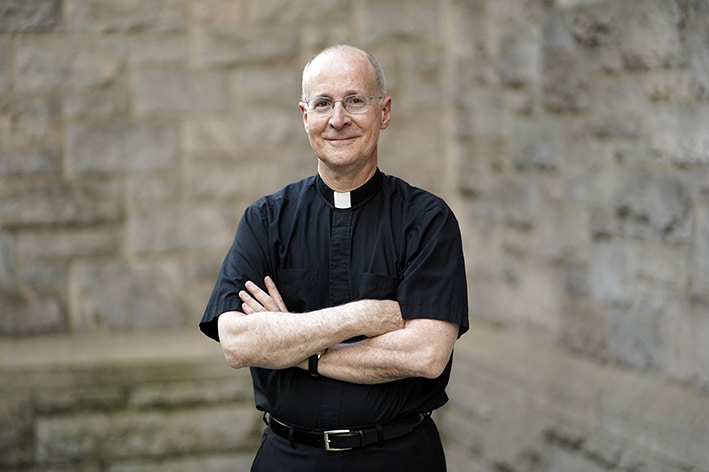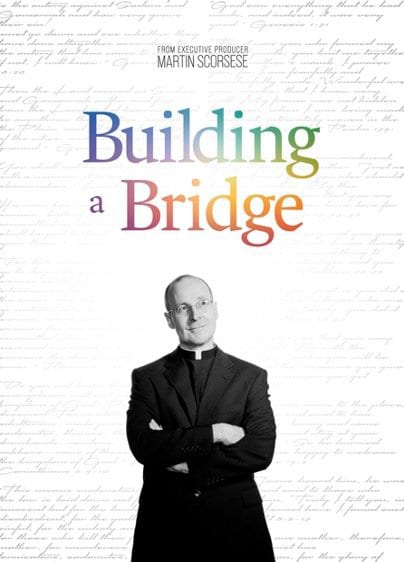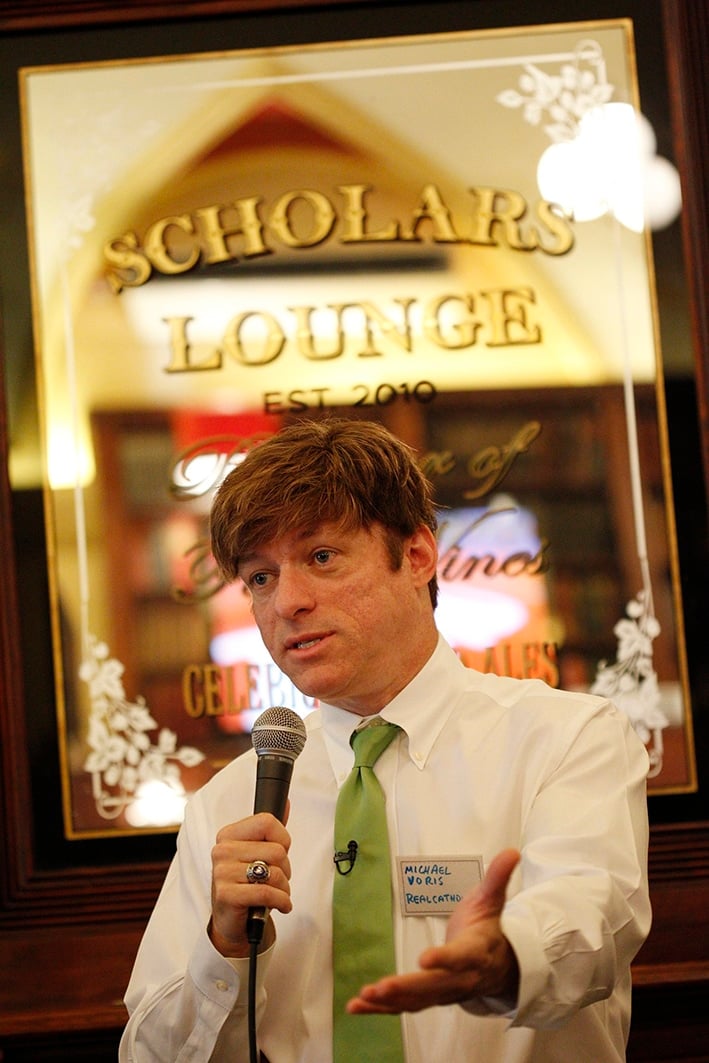
Viewers might want to take this documentary with a grain of salt
Produced by Martin Scorsese, the documentary Building a Bridge (2021) features well-known American Jesuit James Martin in a recent addition to the growing number of documentaries centred on the Catholic Church’s teaching on “non-hetero-normative” lifestyles, those who identify as part of the LGBTQ+ community and their place in the Catholic Church.
The documentary takes its name from the book of the same name written by Father Martin, subtitled ‘How the Catholic Church and the LGBTQ+ Community Can Enter into a Relationship of Respect, Compassion, and Sensitivity.’ It follows the Jesuit as he tours the world attempting to garner wider acceptance of LGBTQ+ persons in the Catholic Church.
Yet this expertly-produced and filmed documentary isn’t so much about what it presents, but more about what is left out through a failure to make a fundamental distinction. Was it deliberate? Early on, the directors highlight Pope Francis’s famous comment “Who am I to Judge?” Yet Building a Bridge makes no attempts to parse what a person can judge (an individual act) and what is up for God to judge (a person’s soul, their intentions – and so on).
All forms of judgement are then lumped together as deficient. In Building a Bridge it seems any hating of sin is necessarily conflated with hatred of the person. The moral fallout of such a fundamental ethical error is that if acts cannot be judged as good or evil then anything can be justified as good or evil.
The false dichotomy whereby Voris supposedly represents the current attitude of the Church implies that there are only two options in ministering to the LGBTQ+ community.”
Yet Fr Martin and his collaborators fail to distinguish precisely what about the LGBTQ+ community the Church is supposedly to accept. Is it those who struggle with their sexuality but also want to remain in a state of grace, or is Fr Martin calling for the Church to adopt a carte blanche acceptance about every view that emanates from that same community?
In contrast, Building a Bridge strategically features interviews with the controversial hard-line (many would say extremist) American layman Michael Voris, founder of ChurchMilitant.com. Voris is a vocal critic of Fr Martin’s ministry and a former active homosexual.
Interestingly, Building a Bridge humanises Voris by showing him joking with the film crew and playing with his dog. But anyone familiar with his methodology and body of work knows that Voris’ approach is far from the “respect, compassion and sensitivity” (CCC 2358) the Church asks its members to exercise when dealing with homosexual people.
At one-point, Voris appears to mock the “respect, compassion, and sensitivity” for which the Church asks. In the same scene, he fails to distinguish the homosexual person from a homosexual act – but grants such a distinction to those who kill.
Voris speaks openly about his past lifestyle while simultaneously denouncing what he calls the great “gaying” and “homosexual infiltration into the Church”.

At no time does Fr Martin commend Voris for reuniting himself to the Church, finding his way back to Catholicism and embracing a life of celibacy. And when Fr Martin shows viewers a social media spam campaign launched at him by ChurchMilitant.com, it frames Voris in an unfavourable light; Voris is the villain while Martin is the victim.
Including Voris’s past lifestyle and his inflammatory and provocative phrasing seems to serve only one purpose: to imply that the reason Voris allegedly “hates” homosexuals is that he is homosexual, and the hate he has for homosexuals is actually self-hatred. Once again, any distinction between loving the sinner and hating the sin is left unspoken.
By highlighting a Martin-Voris dichotomy, only two supposedly Catholic approaches emerge. Fr Martins’ ministry seemingly argues for the Church accepting anything – and possibly everything – whereas Voris’s acceptance and embrace of the Church’s boundaries are offset by his well-known hardline antics and denunciations.
The false dichotomy whereby Voris supposedly represents the current attitude of the Church implies that there are only two options in ministering to the LGBTQ+ community – the nearly anything-goes approach of Martin where accountability and sin seem absent, or the hard-line, insensitive and almost exclusionary approach of Voris.
Yet both miss the nuance necessary in accompanying imperfect people, straight or same-sex attracted, searching for and journeying to God.
In Building a Bridge it seems any hating of sin is necessarily conflated with hatred of the person. The moral fallout of such a fundamental ethical error is that if acts cannot be judged as good or evil then anything can be justified as good or evil.”
Building a Bridge is interspersed with theological commentary from Fr Bryan Massingale, who insists the Church should drop “disordered” sexual acts from its teaching on sex, as well as other theologians who insist that some Church teachings on sex need to change according to current social norms. There is also more than one person in the film who believes that God created them LGBTQ+.
The fear of Voris and many of Martin’s critics is that his ministry’s goal is to normalise same-sex attraction, homosexual activity, and garner support for same-sex marriage. Martin expresses concern over the possibility of being seen with a banner expressing support for same-sex marriage if he were allowed to march in a Pride parade – not because he thinks same-sex marriage is wrong, but because, in his words, he is “not supposed to support same-sex marriage.”

Aside from this loaded remark, Martin does not expressly state support for a sexually active homosexual lifestyle, yet neither does he give any word of warning or clarification about acts that are morally sinful.
In short, Building a Bridge makes Father Martin more look like a politician who seeks to please everyone while committing to nothing – least of all supporting the Church’s understanding of what it means to say that man and woman are created in the image and likeness of God and that how we relate to each other as persons – especially in sex – is of the deepest importance for every human life.
Related:
